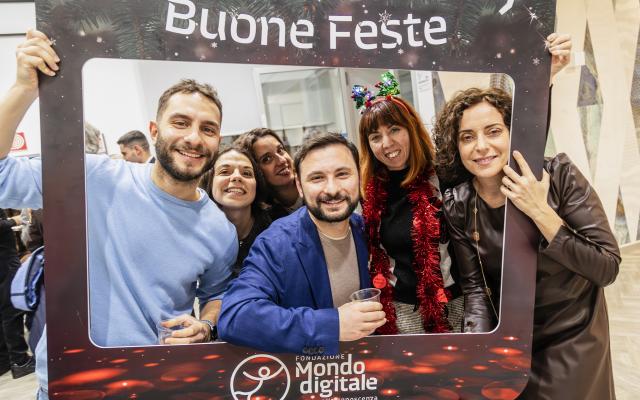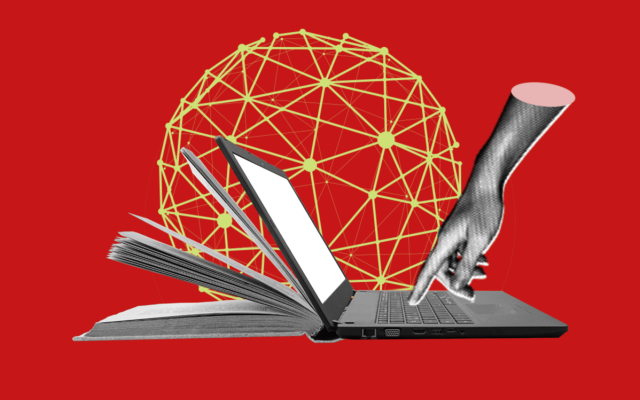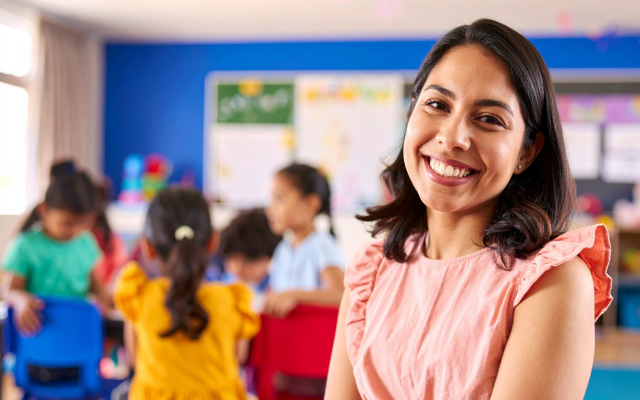Fully Enjoy the Internet involves parents and grandparents, too. The experience at IC Via Aretusa
From October 2022 to June 2023, the Istituto comprensivo Via Aretusa in Rome participated in Project Fully Enjoy the Internet, enjoying the on-line training activities for students, faculty, and parents, the Interland Room Lab (Year 5 primary school students), the intergenerational workshop on storytelling for students and grandparents, and the lab dedicated to “On-line Wellbeing for the Fragile.” Moreover, students also participated in the RomeCup 2023 labs held at the Rome Campus Bio-Medico University. Adults and children also had the opportunity to explore various tools: the Interland: Digital Adventures book, as well as the table and on-line versions of the game, the Interland Room, a didactic lab on digital citizenship, and a prototype of Interland4All.
Here is an interview held by Onelia Onorati with Italian Professor Aurelia Cassar, who is also the school coordinator for civic education, bullying and cyberbullying.
How come you decided to participate in so many activities organised by “Fully Enjoy the Internet,” including the RomeCup 2023 labs?
It was easy. I’m the coordinator for civic education, bullying and cyberbullying and often receive proposals for on-line activities. At the beginning of the school year, Project Officer Marta Pietrelli proposed that we join Fully Enjoy the Internet and, after having studied it, we immediately decided to participate with our first-degree secondary school classes, in agreement with the school’s Director, Giovanni Scancarello. Our school is located in “la Rustica,” a suburban area of Rome that is plagued by educational poverty and micro-criminality. Many students need extra support, both in terms of didactic activities and social behaviour, from solid figures that they can rely on. It is fundamental from an early age to provide a firm answer to phenomena such as bullying and cyberbullying, which are rather widespread in the area. Many of our teachers address this issue and help students understand how to contrast it. However, due to the distance and mobility issues, not all classes were able to attend the activities. However, the second year of first-degree primary school and the fifth year of primary school classes were able to participate. And the results were fantastic, involving many students who are particularly exposed to social and on-line dangers at their age. For example, last year, one of my students was dangerously stalked by an adult. Also, thanks to the help of the postal police, we were able to solve the situation. So, we are more than happy to participate in a course to provide students with prevention tools.
Having participate in various initiatives organised by Fully Enjoy the Internet, what do you think about the tools provided by the course? How useful are they to increase awareness of the risks and potential of the Internet, not only for students, but also for your personal use of the Internet?
I can answer this by quoting my students. It was very interesting. The coaches were very professional, their ability to interact with the students was optimal, and all the tools were perfectly suitable. Our last meeting also involved parents and was very successful. In short, all the presented tools were useful and helpful for our daily teaching activity, too.
How can one use these issues related to digital security and wellbeing in everyday lessons?
We address issues related to digital wellbeing and safe use of the Internet daily, but thanks to course like Fully Enjoy the Internet, we feel far more comfortable addressing many issues and speaking about how to contrast cyberbullying and on-line threats in an open manner. The fact that external coaches use certain techniques is very interesting, especially for the students and helps them open up. They are more rigid about classroom lessons, but flash cards, videos, discussions with coaches, and games help face any issue far more directly.
Out of all the activities you experienced, which do you believe are most interesting for use in the classroom? Did any activity stand out in terms of the issues you experience daily?
What most struck me was the meeting with the postal police. The students were able to empathize with the stories and examples used and the experience really drew them in.
Does the Internet always separate people and generations or can it help bring people together through a common language?
The meetings between students and grandparents were a great success. I saw many students bonding with young 50-year-old grandparents and teaching them to use the Internet, apps, and about technology, in general. The grandparents were often strict, but their desire to protect their grandchildren was equal to the latter’s desire to teach them how to use the new tools. They were also very interested in the experiences of the grandfathers on topics like how they organised their free time and school. In this case, technology brought different generations together, providing a base for interaction and dialogue.
What do you think about the labs organized at the Fondazione Mondo Digitale and at RomeCup? Was it useful to step out of the school context and follow courses in different environments?
The decision to come to RomeCup 2023 immediately appeared as a unique opportunity. We were able to participate thanks to the help of a dozen parents who chaperoned the students and also participated in the labs with the students and teachers. Everyone was extremely satisfied about the context. And the students felt very united, unlike in class when non-collaborative micro-groups often form. The parents felt fully involved and an integral part of the process possibly for the first time. As a teacher, I must say that a truly reciprocal relation has taken shape with the Fondazione Mondo Digitale, an exchange in which we fully felt part of the process.



